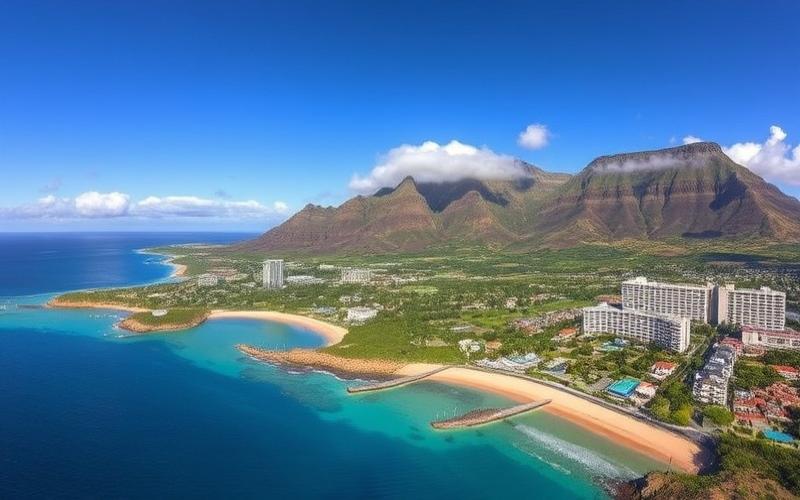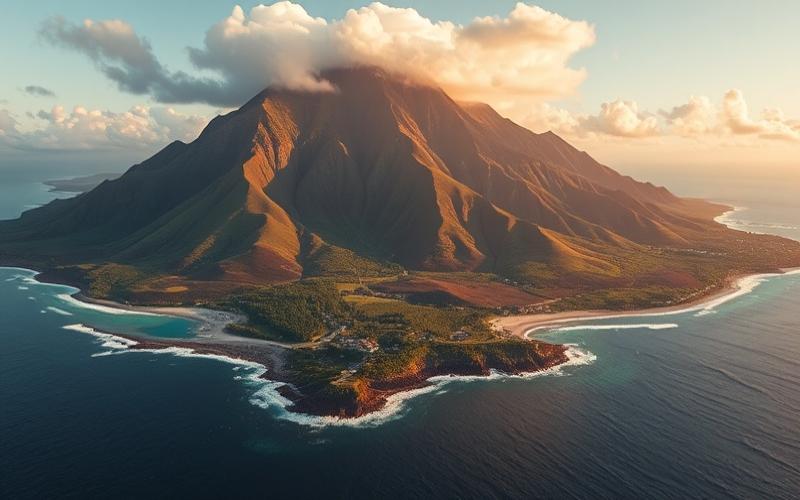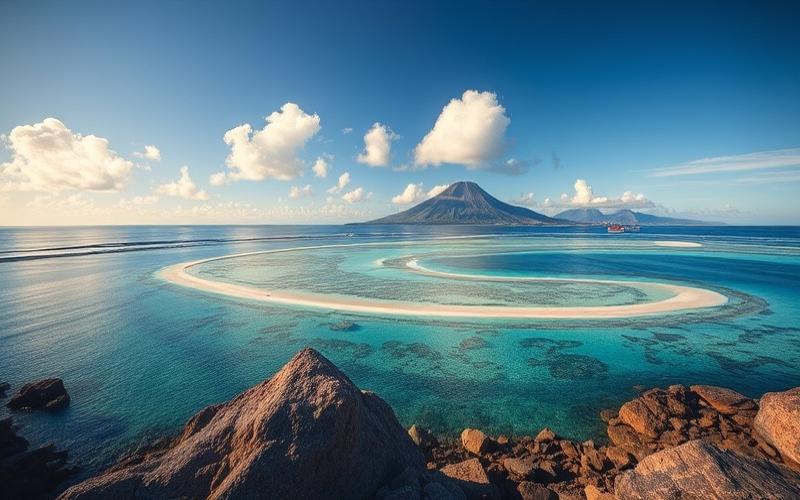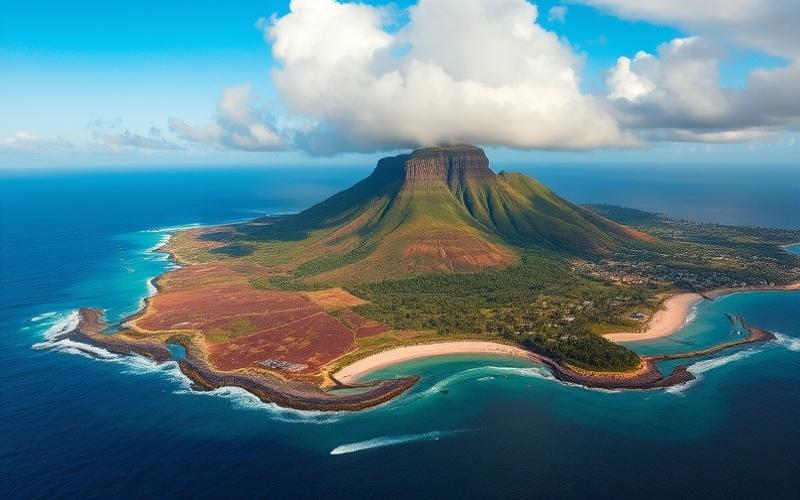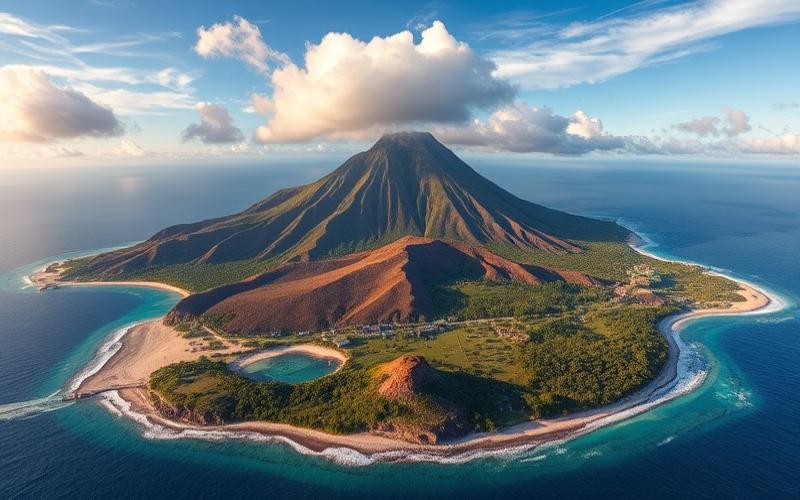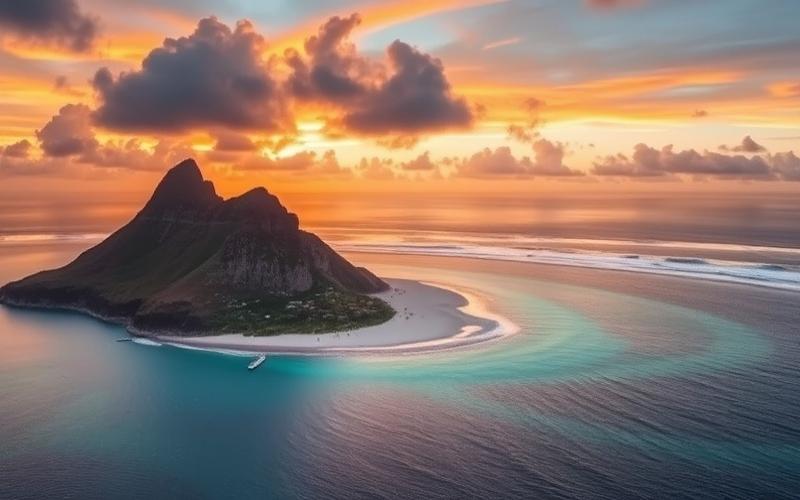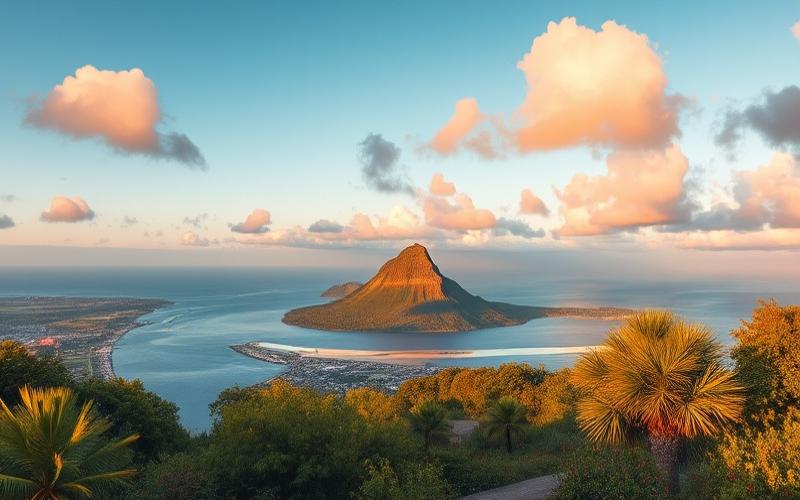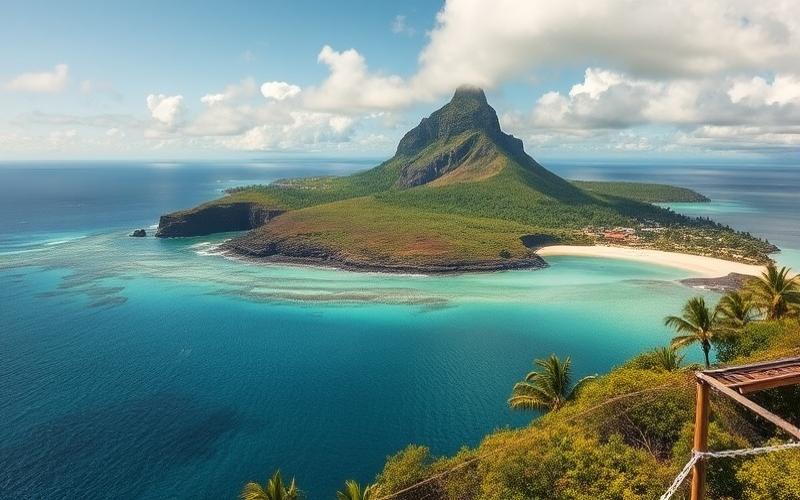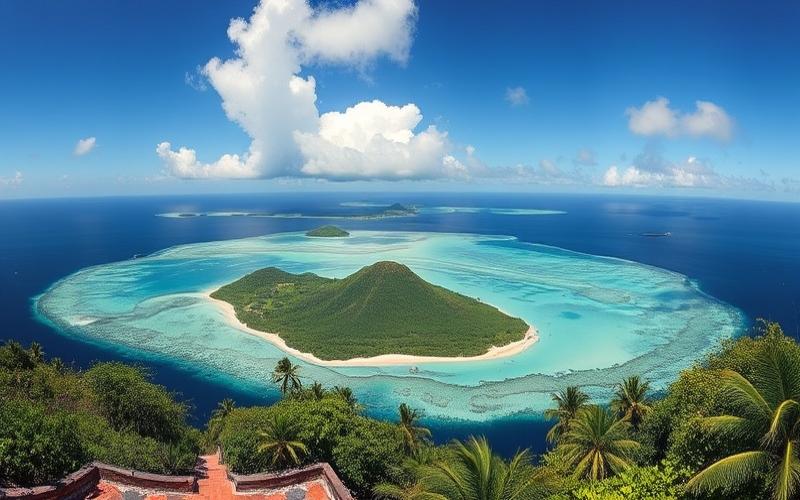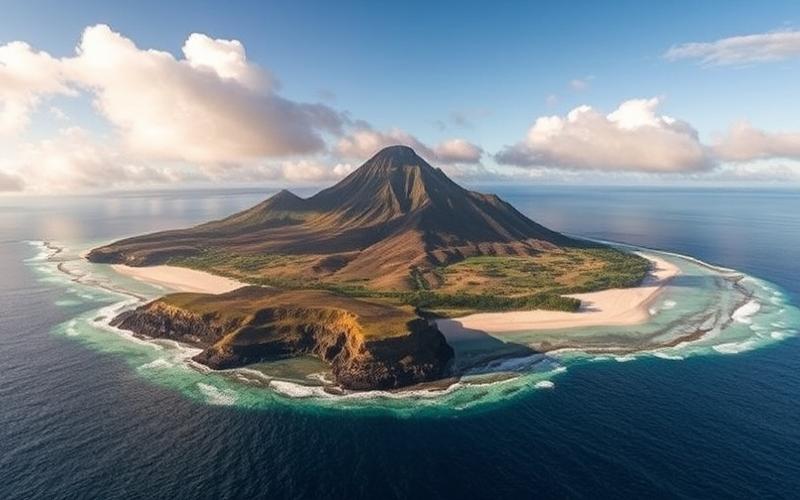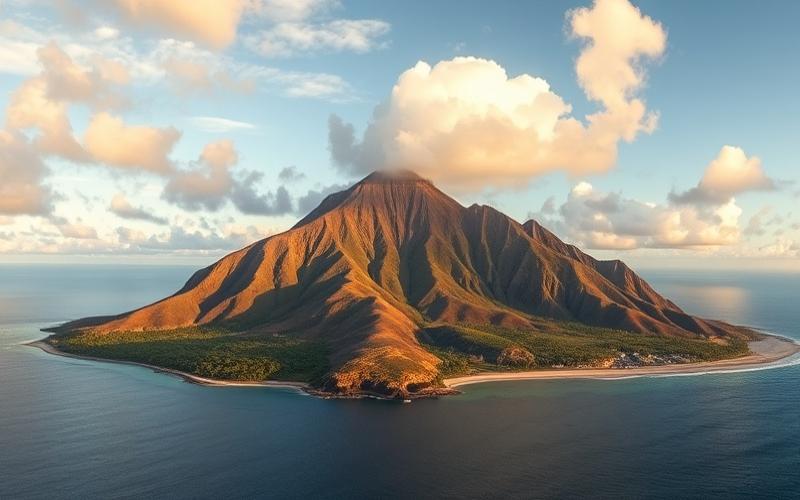
 Published on and written by Cyril Jarnias
Published on and written by Cyril Jarnias
Mauritius, with its white sandy beaches, turquoise waters, and paradise-like living environment, is attracting more and more expatriates seeking a fresh start. Whether you’re considering a temporary or permanent move, finding the ideal housing is a crucial step in your project. Here’s a comprehensive guide to help you find that perfect gem and settle peacefully in this little slice of paradise.
Secrets to Finding Your Dream Home in Mauritius
Finding housing in Mauritius might seem intimidating at first, but with the right strategies, you can quickly get your hands on the property that meets your expectations. Here are some tips and tricks to optimize your search:
Start your search online: The internet is your best ally for getting an initial overview of the Mauritian real estate market. Websites like Lexpress Property or Immobilier.mu are filled with listings for all budgets and lifestyles.
Hire a local real estate agent: Professionals in the sector know the market inside out and can save you precious time. They often have access to offers that aren’t published online and can effectively guide you through the process.
Leverage the power of social media: Join Facebook groups dedicated to expatriates in Mauritius. These communities are a goldmine of information and great deals, and you might even find private listings there.
Opt for a scouting trip: If possible, take a short trip to the location before your permanent move. Nothing beats an in-person visit to get a precise idea of the neighborhoods and available housing.
Be responsive: The Mauritian real estate market can be dynamic, especially in sought-after areas. Don’t hesitate to quickly contact owners or agents for properties that interest you.
Good to know:
Furnished rentals are very common in Mauritius, which can greatly facilitate your move. Many landlords offer short-term leases, ideal for starting your stay smoothly.
Housing Budget in Mauritius: How Much to Plan for Living on the Paradise Island?
The cost of housing in Mauritius can vary considerably depending on the location, type of property, and its amenities. Here’s an overview of price ranges to help you plan your budget:
Apartment rentals: – Studio or 1-bedroom in urban area: starting at 15,000 Mauritian rupees (approximately 300 euros) per month – 2-3 bedroom apartment by the sea: between 25,000 and 50,000 Mauritian rupees (500 to 1000 euros) per month
House or villa rentals: – Standard house in a residential neighborhood: starting at 40,000 Mauritian rupees (800 euros) per month – Luxury villa with pool by the sea: starting at 100,000 Mauritian rupees (2000 euros) per month
Property purchases: – New apartment: starting at 5 million Mauritian rupees (100,000 euros) – Luxury villa: starting at 15 million Mauritian rupees (300,000 euros)
It’s important to note that prices can be significantly higher in popular tourist areas like Grand Baie or Flic en Flac.
Don’t forget to account for additional expenses: – Electricity: approximately 3,000 to 5,000 Mauritian rupees (60 to 100 euros) per month – Water: approximately 500 to 1,000 Mauritian rupees (10 to 20 euros) per month – High-speed internet: approximately 1,500 Mauritian rupees (30 euros) per month
Good to know:
Landlords typically require a security deposit equivalent to 2 or 3 months’ rent. Also budget for agency fees if you go through a professional.
Expatriates’ Favorite Neighborhoods: Where to Settle for a Dream Life in Mauritius?
Mauritius offers a great diversity of living environments, each with its advantages. Here’s an overview of the most popular areas among expatriates:
Grand Baie: paradise for beach lovers and nightlife enthusiasts Located in the north of the island, Grand Baie is renowned for its magnificent beaches, trendy restaurants, and vibrant nightlife. It’s the ideal choice for expatriates seeking a dynamic and cosmopolitan lifestyle.
Flic en Flac: between beach and amenities On the west coast, Flic en Flac offers an excellent compromise between beach life and access to amenities. Its spectacular sunsets and long beach make it a favorite spot for families and nature lovers.
Tamarin: for surfers and tranquility seekers Tamarin, on the west coast, attracts many expatriates looking for a more authentic and relaxed living environment. It’s the perfect spot for surfers and those seeking a village atmosphere.
Moka: the green option near the capital For those who prefer the coolness of the heights, Moka offers a green setting just a few kilometers from Port Louis, the capital. It’s a wise choice for families, with its renowned international schools.
Black River: luxury and preserved nature The Black River region, in the southwest of the island, appeals to expatriates seeking luxury and tranquility. Its high-end residences and proximity to the Black River Gorges National Park make it a privileged living location.
Good to know:
Each region of Mauritius has its own microclimate. The east coast tends to be windier, while the west generally enjoys drier and sunnier weather. Take these particularities into account in your location choice.
Pitfalls to Avoid During Your Housing Search in Mauritius
Despite the idyllic setting, searching for housing in Mauritius can have some pitfalls. Here are some points to watch out for to avoid unpleasant surprises:
Watch out for listings that seem too good to be true: If an offer seems too good to be true, be wary. Real estate scams exist in Mauritius too.
Check the condition of the property: Photos can be misleading. Insist on visiting the property in person or ask for a detailed virtual tour before committing.
Read the rental contract carefully: Make sure you fully understand all clauses, especially regarding utilities, repairs, and termination conditions.
Research the neighborhood: Some areas can be noisy, especially near hotels or tourist zones. A visit at different times of the day can give you a better idea of the neighborhood’s atmosphere.
Verify the legality of the property: If you’re considering a purchase, make sure the property complies with local regulations, especially if you’re not Mauritian.
Administrative Procedures: What You Need to Know to Rent or Buy in Mauritius
To finalize your move, you’ll need to familiarize yourself with certain administrative procedures:
Residence permit: To stay in Mauritius for more than 6 months, you’ll need a residence permit. Certain types of visas, like the Premium Visa, can facilitate your move.
Opening a local bank account: This is often necessary for paying rent and utilities. Major Mauritian banks offer services tailored to expatriates.
Home insurance: Although not mandatory for tenants, it’s highly recommended, especially in coastal areas exposed to cyclones.
Lease registration: All rental contracts must be registered with the Registrar General to be legally valid.
Good to know:
If you’re considering buying property in Mauritius, be aware that certain restrictions apply to non-residents. However, the IRS (Integrated Resort Scheme) program allows foreigners to acquire luxury properties under certain conditions.
Finding housing in Mauritius might seem complex at first, but with the right tools and a methodical approach, you can quickly make your island life dream a reality. Whether you choose the bustling life of Grand Baie, the authentic charm of Tamarin, or the discreet luxury of Black River, Mauritius has something to offer every expatriate. Remember to take your time, do thorough research, and get assistance if needed. Your Mauritian paradise is waiting for you!
Disclaimer: The information provided on this website is for informational purposes only and does not constitute financial, legal, or professional advice. We encourage you to consult qualified experts before making any investment, real estate, or expatriation decisions. Although we strive to maintain up-to-date and accurate information, we do not guarantee the completeness, accuracy, or timeliness of the proposed content. As investment and expatriation involve risks, we disclaim any liability for potential losses or damages arising from the use of this site. Your use of this site confirms your acceptance of these terms and your understanding of the associated risks.

